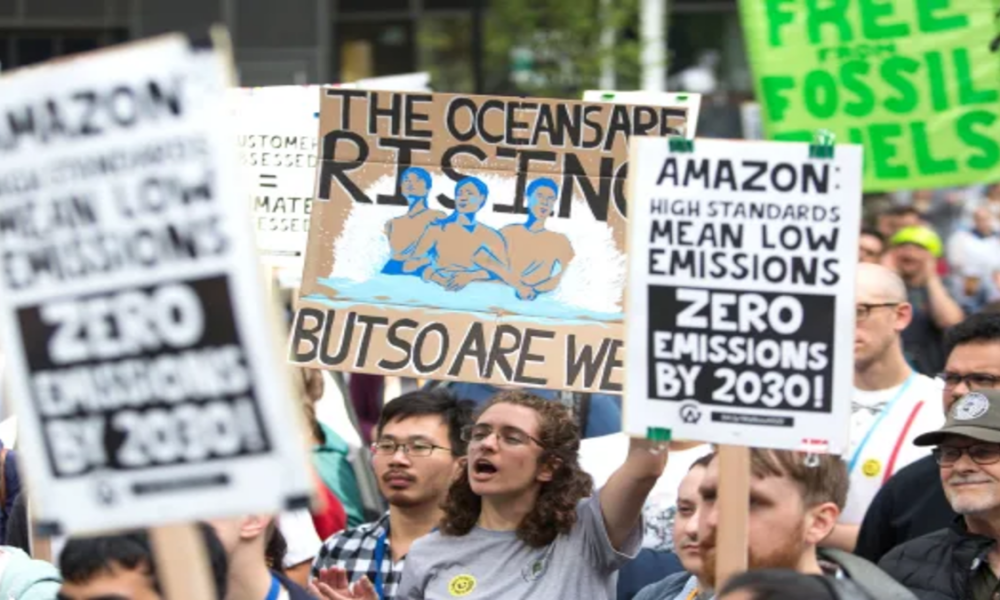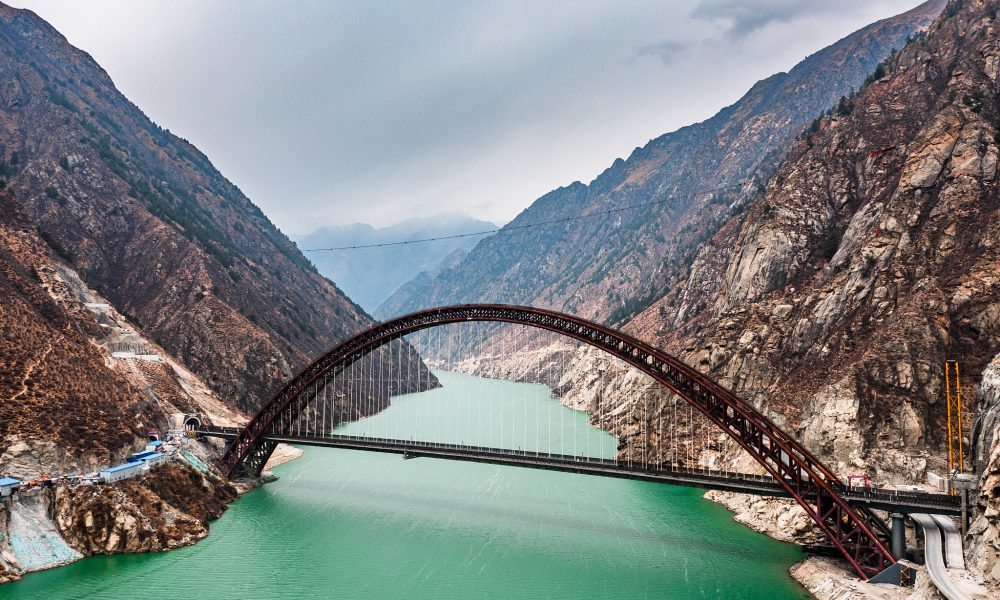An internal petition signed by 640 Amazon tech and corporate employees requests the company raise its emissions goals. They also want Amazon to address the disproportionate environmental damage its warehouses leave on Black, Latino, Indigenous, and immigrant neighborhoods.
What We Know:
- Amazon Employees for Climate Justice (AECJ) organized the petition after the corporation persuaded the Securities and Exchange Commission to bar including a proposal from the group at a Wednesday shareholder meeting. A good portion of AEJC participants receives stocks with their job positions.
- The AECJ wants Amazon to provide detailed research as to how its logistics and delivery operations “pose disproportionate environmental and health hazards for communities of color.” The faction also demands the institution prioritize those communities in its emissions reduction strategy. Moreover, the AECJ urges the company to push its zero-emissions goal to 2030, the time in which climate scientists estimate that global warming could result in the irreversible loss of fragile ecosystems. Furthermore, the 640 workers request that Amazon deploy their new electric vehicles in areas severely affected by Amazon’s delivery transportations pollution.
“An electric delivery truck in a Seattle suburb doesn’t help a kid developing asthma living and going to school near a major shipping center, like in the Inland Empire,” said Selene Xenia, an engineering manager at Amazon and Amazon Employees for Climate Justice member.
- Climate change advocates and policymakers already expressed concern about Amazon’s diesel trucks, airplanes, and vans creating air pollution to deliver orders via their warehouse network. According to the Amazon employee group’s research and data collected by logistics consulting firm MWPVL International, around 80 percent of these warehouses are located in ZIP codes with high populations of Black, Latino, and Indigenous people.
- Southern California’s Inland Empire encountered the brunt of the increased pollution, the People’s Collective for Environmental Justice reported last month. An increase in warehouses in the area correlated with an increase in poor air quality and health problems like asthma, bronchitis, and cancer.
- Despite this, Amazon will extend its operations in the Inland Empire by creating a logistics hub at the San Bernardino Airport. The airport authority’s environmental assessment showed that the future facility’s 26 additional flights and 500 daily truck trips would emit 1 ton of air pollution a day. While the hub would meet federal requirements, California Attorney General sued the Federal Aviation Administration and the airport authority last year. He called the project unlawful and declared it would cause significant harm to the air quality. The 2020 Census shows that San Bernardino’s population contains 65 percent of Latinos.
- The AECJ has been demanding Amazon to care about climate change for years. In 2019, alongside other workers from various tech enterprises like Google, Twitter, and Microsoft, the AECJ conducted a walkout. Even though a day before CEO Jeff Bezos announced his plans to send out electric vans by 2024 and to make Amazon carbon neutral by 2040, employees still walked out because “their demands called for stronger action.”
- The employees’ climate activism already caught the eye of a few company executives. For example, Tim Bray, an Amazon former vice president, signed a 2019 petition asking the corporation to reduce its carbon footprint and sever any connections with the oil and gas industry. However, it also garnered negative attention; last year, Amazon fired two of the AECJ’s core organizers, Emily Cunningham and Maren Costa. It cited company policy which prohibits employees from publicly discussing its business. Last month, the National Labor Relations Board determined their firings were illegal. Yet, Amazon disagreed with the ruling.
Brad Glasser, an Amazon spokesperson, stated that even though the business supports the employee’s right to critique their employer’s working conditions, “but that does not come with blanket immunity against our internal policies, all of which are lawful.” The AECJ will introduce its shareholder resolution to Amazon’s board on May 27. More details will be provided after the meeting.



